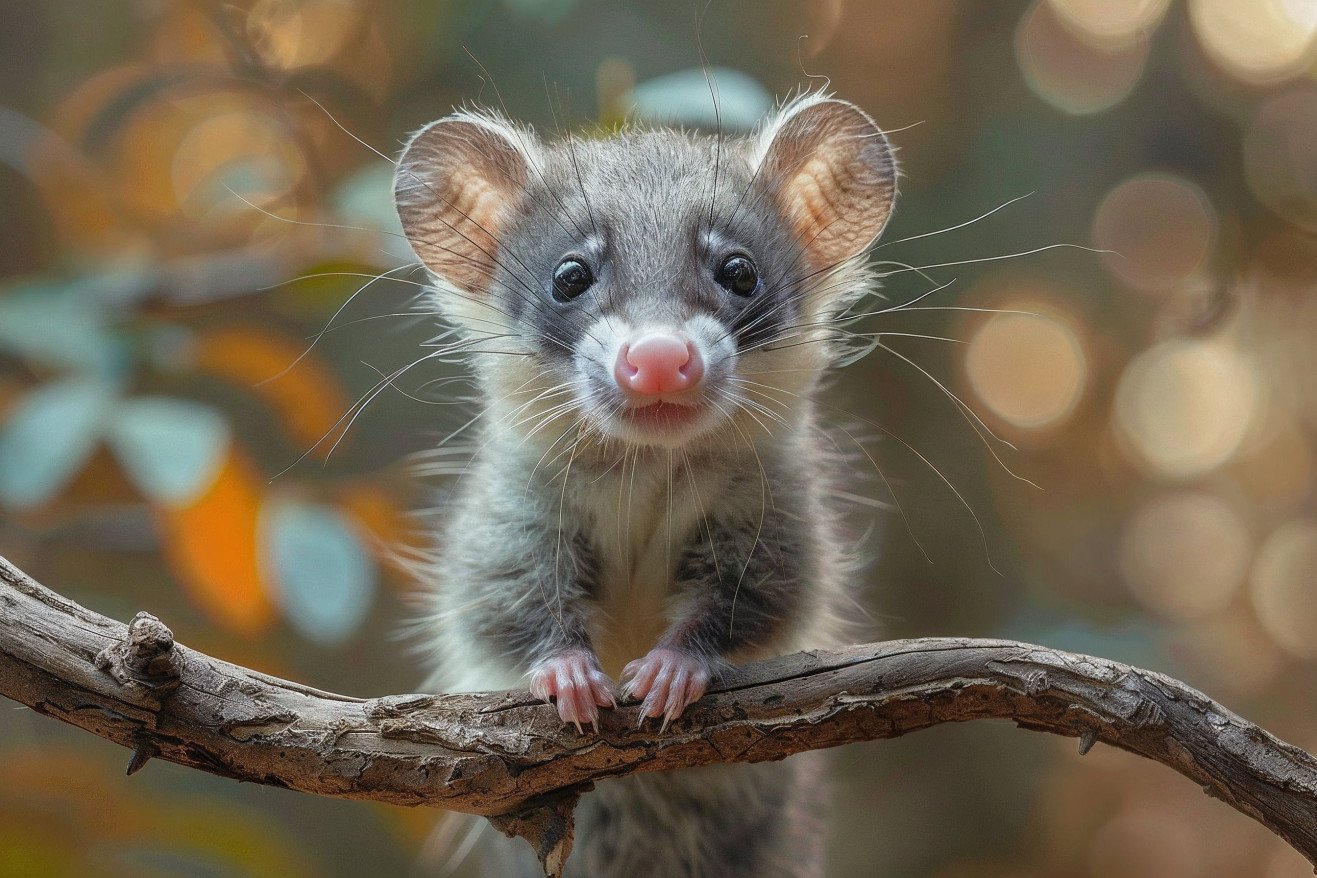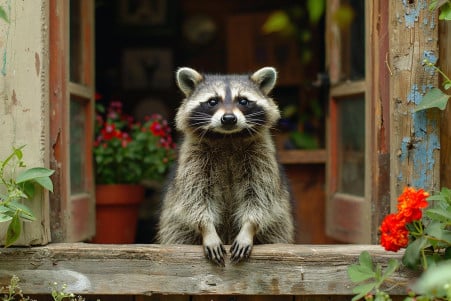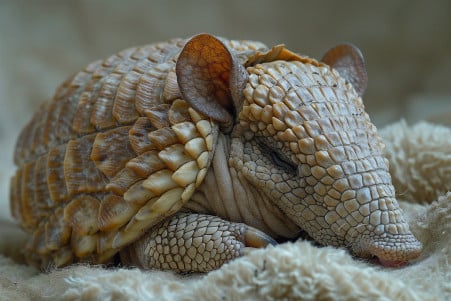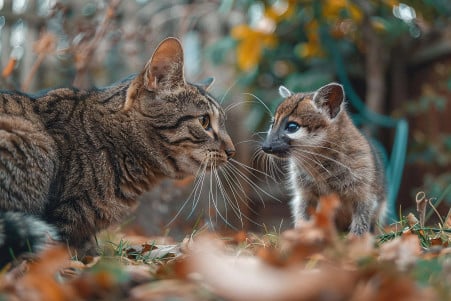Should You Keep an Opossum as a Pet? A Look at the Ups and Downs of Keeping Marsupials as Pets
22 May 2024 • Updated 22 May 2024

You may have heard that opossums can be kept as pets, but are these strange marsupials really a good choice for domestication? Opossums are not good pets. They are friendly when they are young, but they become aggressive and unpredictable as they age. Opossums also need to be fed a special diet, require large enclosures, and can carry diseases that can be transmitted to humans. Because of their smell and tendency to bite, opossums are best left to experienced exotic pet owners.
Despite their appeal as unusual pets, this article will explore the scientific research on opossums, including their behavior, housing needs, and potential dangers. By looking at studies conducted by wildlife biologists, veterinarians, and exotic animal experts, you will learn whether or not opossums are good candidates for domestication or if they are better off in the wild.
Do Opossums Make Good Pets?
Opossums' Natural Behavior and Temperament
Although opossums may look cute and cuddly from afar, their natural instincts and behaviors make them poor choices for pets. As explained by NaturalStateWildlife.com, while baby opossums may seem friendly, they can become aggressive and unpredictable, even biting, once they reach adulthood. This can be dangerous for kids and other pets in the home.
Opossums are also solitary, nocturnal creatures that need lots of space and opportunities to roam and play, which can't be met in a home environment. As noted by TheSpruceEats.com, they are also known for being escape artists, so their enclosures need to be secure and escape-proof. In addition, their natural behaviors, including climbing, burrowing, and foraging, can lead to damage in the home.
Although they may seem friendly at first, ExoticPetWonderland.org explains that opossums' wild instincts don't go away when they're kept as pets. Their potential for aggression, need for lots of space, and tendency to cause damage due to their natural behaviors mean that opossums are very difficult pets that are best left to the wild.
Specialized Diet and Housing Needs
Opossums have very specialized dietary and housing needs, which can make them difficult to care for in captivity. Because they are omnivores, their diet should include a mix of proteins, vegetables, limited fruits, and supplements to avoid health problems. ExoticNutrition.com notes that feeding pet opossums an improper diet can result in issues like obesity, metabolic bone disease, and other conditions that can be debilitating.
Meeting the nutritional needs of opossums can be challenging and requires a lot of attention to detail because their dietary needs are so specific. According to Opossum.org, any diet that includes too much meat, protein, or supplemental vitamins A, D, or calcium can be harmful to opossums. Instead, their diet should be based on low-fat, high-protein dry pet food that's supplemented with insects, fruits, and vegetables.
In addition to their specialized diet, opossums need large enclosures that include climbing opportunities, nesting boxes, and carefully controlled temperature and humidity. Animals.Mom.com suggests a minimum of a 20-gallon enclosure with the appropriate accessories. Not providing enough space and the right environmental conditions can lead to serious health and behavioral issues for these active, inquisitive marsupials.
Legal Issues and Dangers
There are many states that have laws that either limit or completely ban the ownership of opossums and other exotic animals. According to FindLaw, some states have laws that limit the animals that can be owned, while others have laws that ban the ownership of exotic animals. In some cases, even if ownership is allowed, a special permit, training, or housing may be required.
In addition to the legal issues, there are also health risks associated with opossums. According to UrbanJungleWildlifeRemoval.com, opossums are known to carry diseases like Lyme disease, typhus, and parasites. They can also be aggressive and attack other animals and humans if they feel threatened or are competing for food.
Opossums also have very specialized health needs that can make it difficult to care for them. According to Opossum.org, there is a lack of veterinary knowledge about how to care for opossums, which can make it difficult to diagnose and treat any health problems that may arise. Between the legal issues, health risks, and specialized care needs, opossums are not a good choice for most people looking for a pet.
Opossums' Place in the Ecosystem
Opossums are important members of their ecosystems, helping to keep populations of other animals in check. According to The Humane Society of the United States, opossums eat snakes, rodents, insects, and even ticks that can carry Lyme disease. The National Wildlife Federation even says that a single opossum can eat up to 5,000 ticks in a season, calling them "unsung heroes" in the battle against tick-borne diseases.
In addition to their role as pest controllers, opossums also help keep the environment clean by eating fallen fruit, carrion, and other organic waste as scavengers, according to Gardening Know How. They are also resistant to rabies and snake venom, which helps keep the populations of these threats in check.
That said, Furbearer Conservation warns that high opossum populations can lead to public health risks due to their unsanitary behavior and their ability to spread diseases like typhus. Balancing opossums' important place in the ecosystem with the potential risks they pose is important to successfully coexisting with these adaptable urban wildlife.
What to Do If You Find a Baby Opossum
If you come across orphaned or injured opossums, it's important to make sure they get the help they need. According to the DFW Wildlife Organization, baby opossums (joeys) that are smaller than 7-8 inches from the tip of their nose to the base of their tail are probably orphans and should be rescued by a wildlife rehabilitator. If the joey is larger than 8 inches, it can probably survive on its own unless it's injured, sick, or emaciated.
It's important to remember that when you're dealing with any wild animal, including opossums, you should always wear gloves to protect yourself from bites and the potential transmission of diseases, according to the Tufts University's Cummings School of Veterinary Medicine. After you've picked up the animal with gloves on, you should put it in a warm, dark, and quiet place, like a well-ventilated box or carrier, to take it to a wildlife rehabilitation center.
If you find a dead opossum, it's important to check the pouch for any surviving babies, according to the Opossum Society of the United States. There may be tiny joeys inside that are still alive and need to be taken to a wildlife rehabilitator. By following these steps, you can make sure that orphaned and injured opossums get the help they need.
Wrapping Up: The Pros and Cons of Keeping an Opossum as a Pet
Opossums have very specific care requirements that make them unsuitable pets for most owners. Their unpredictable nature, potential for disease transmission, and need for specialized housing pose significant challenges. While they provide ecological benefits, opossums are designed to be wild animals with a relatively short lifespan.
For orphaned or injured opossums, it is best to contact professional wildlife rehabilitators for proper care. Understanding the facts about opossums allows for peaceful coexistence while appreciating their role in nature.


